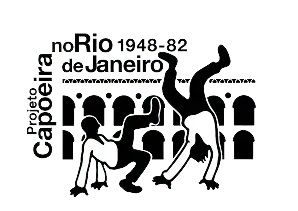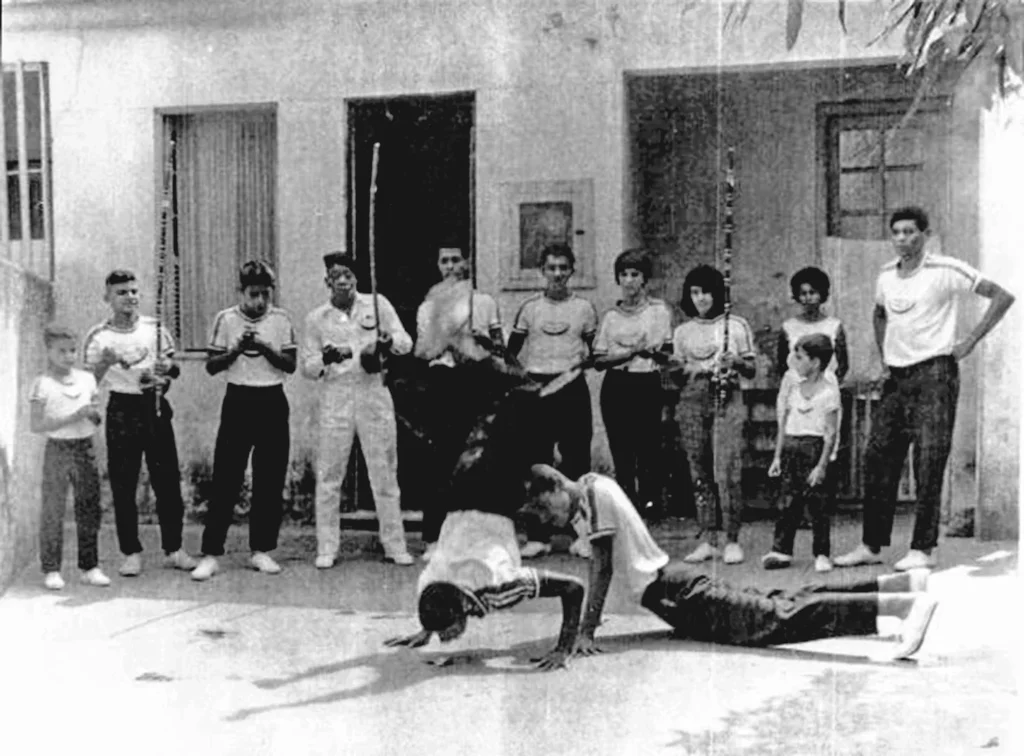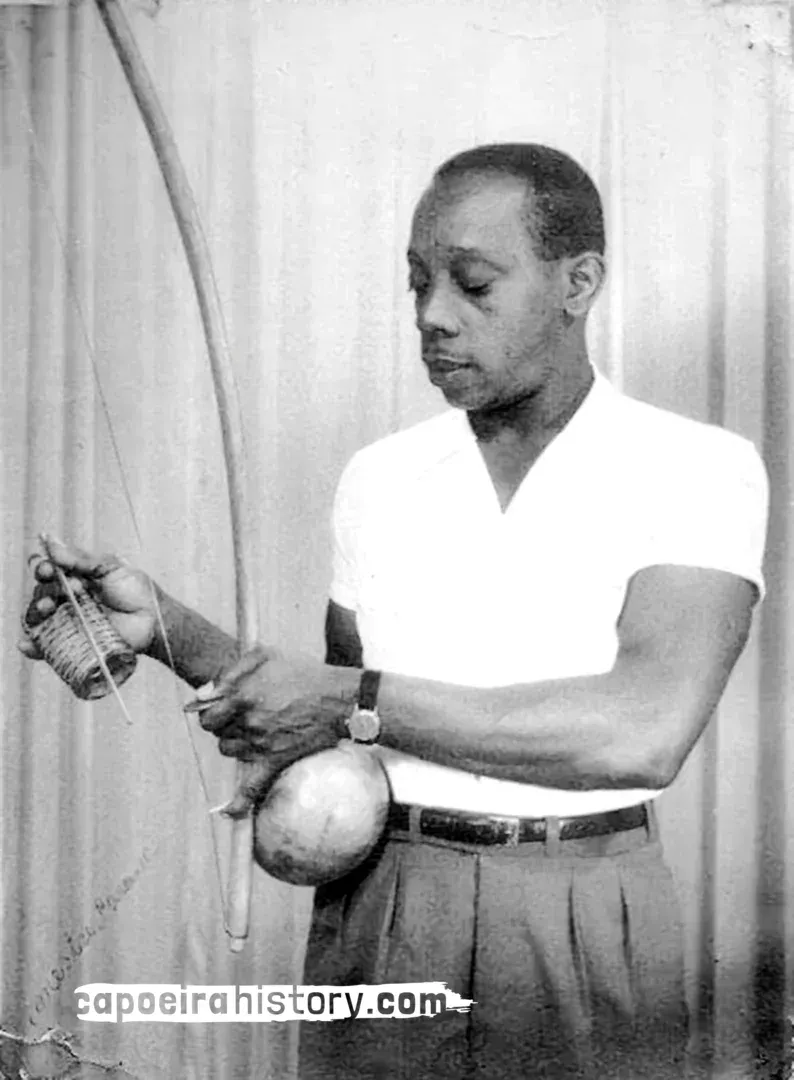Oswaldo Lisboa dos Santos, Master Paraná, was born in 1922, in Salvador, Bahia. In capoeira, he became known as an excellent berimbau player, an instrument that he himself built with great care.
Juliana Pereira (April 2020)
According to the testimonies of his former students, he learned capoeira in Bahia with Antônio Corró. Paraná moved to Rio de Janeiro in 1944, when he was only 22 years old. He was one of the first Bahian capoeiristas to establish themselves in the city.
In Rio de Janeiro he got work at the Pensions and Assistance Institute for public servants of Rio de Janeiro state (Instituto de Pensões e Assistência aos Servidores do Estado – IPASE). He lived in the Bonsucesso neighbourhood, in the northern zone of Rio de Janeiro and started to teach capoeira in his backyard in the 1950s. M Paraná received many children in his backyard, and the role of his wife, Maura Bastos, known as Aunt Maura, was fundamental here as she received and cared for the youngsters.
In the capoeira universe Paraná became known mainly because he was an excellent berimbau player. A carpenter by profession and training, he carefully manufactured his berimbaus himself using coated strings and varnished wood. His great ability as a musician allowed him to record, in 1963, a single record with four tracks with the CBS company, called Capoeira – Mestre Paraná. He was also often asked to play berimbau in other academies, for instance at the roda of M Artur Emídio.
In the image, Master Paraná appears playing the berimbau in the photo shoot for the album cover.
Master André Lacé draws attention to the “pose”, which seeks to show the instrument and the musician equally, but contradicts the way of playing it effectively.
Photo: Mestre Polaco collection.
In 1956, according to M Polaco, he founded the Conjunto Folclórico de Capoeira São Bento Pequeno. The group presented itself at various types of shows, disseminating Afro-Brazilian culture in “Bahian Nights” organized by social clubs and carnival schools, parades of carnival groups and theatre plays such as the piece O Pagador de Promessas by Dias Gomes in Rio de Janeiro in1962, together with the capoeirista Joel Lourenço do Espírito Santo
Paraná died in 1972, at the age of 49, victim of a heart attack. His ability and talent playing berimbau is always highlighted by masters who had the opportunity to meet him. His trajectory, even though brief, left an important heritage in the history of contemporary capoeira and today various masters and groups claim him heritage.
In this video produced by CapoeiraHistory you can discover more about Paraná and its berimbau:
Sources:
- Interviews with Masters Cabide, Polaco, Genaro and Mintirinha.
- Newspapers from Hemeroteca Digital da Biblioteca Digital.
- Cedoc Funarte.








